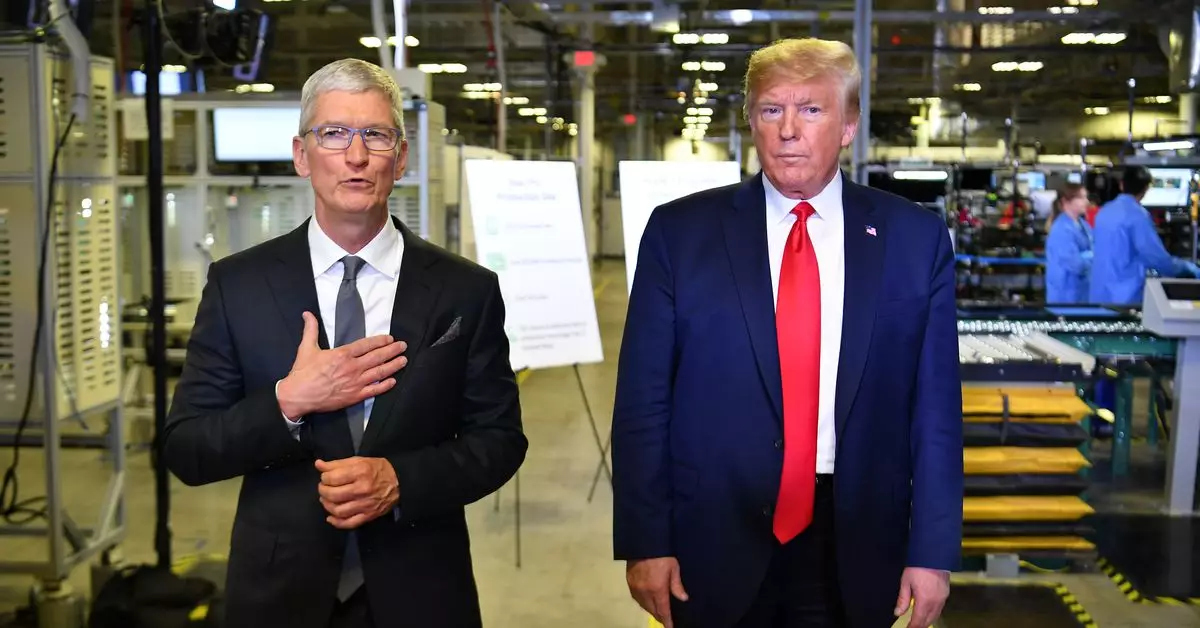In the intricate world of tech and politics, successful engagement often hinges on personal connections. A recent analysis highlights how Apple’s CEO, Tim Cook, effectively cultivated a unique rapport with Donald Trump during his presidency. This relationship has proved beneficial for both parties, leading to strategic policy discussions that would shape Apple’s business landscape. While Cook’s approach may not be universally applicable, it offers a fascinating glimpse into the dynamics of corporate influence and political power.
One of the key takeaways from Cook’s interactions with Trump is the departure from conventional lobbying practices. Instead of relying solely on lobbyists and corporate representatives, Cook adopted a more personal approach, opting for direct calls and dining engagements with Trump. This method not only allowed for clearer messaging but also fostered a sense of intimacy that often eludes formal negotiations. Simplifying complex issues into singular talking points enabled him to effectively focus discussions, preventing meetings from veering into unproductive territories.
A significant aspect of Cook’s strategy was his adeptness at aligning Apple’s goals with Trump’s political agenda. By identifying and emphasizing shared interests, he was able to position Apple favorably within the administration. This synergy not only proved mutually beneficial but also elevated Cook’s standing in the eyes of Trump, who thrived on acknowledgment and affirmation. The ability to navigate these interests speaks volumes about the importance of understanding one’s audience in political engagement—a lesson that many tech leaders are keen to internalize.
As Cook’s successful strategy comes to light, it raises questions about how other tech executives can replicate his model. Companies like Boeing and FedEx have already begun pursuing similar direct engagement strategies, seeking to establish their connections with key political figures. There’s a growing recognition that traditional forms of lobbying may no longer suffice in an era where personal relationships can dictate policy decisions. By embracing a direct line of communication, tech leaders hope to sway policy in a way that aligns more closely with their organizational objectives.
The Power of Flattery and Public Relations
The influence of personal relationships extends beyond just policy discussions; it also encompasses public perception. Influential tech figures, including Sundar Pichai of Google and Mark Zuckerberg of Meta, have reportedly sought to charm Trump through flattery and public support. This phenomenon illustrates that in politics, as in life, mutual appreciation can lead to favorable outcomes. Building a rapport based on respect and recognition can often yield dividends that straightforward lobbying cannot achieve.
The interplay between technology and politics is evolving, and Tim Cook’s strategies underscore the importance of personal relationships in this realm. As technological giants navigate the complexities of political engagement, Cook’s playbook may emerge as a guiding framework. As executives continue to seek influence in governmental spheres, mastering the art of personal connection and alignment with political motivations is likely to remain a critical factor in their success. The evolution of this landscape may just redefine how tech companies approach their interactions with policymakers moving forward.


Leave a Reply